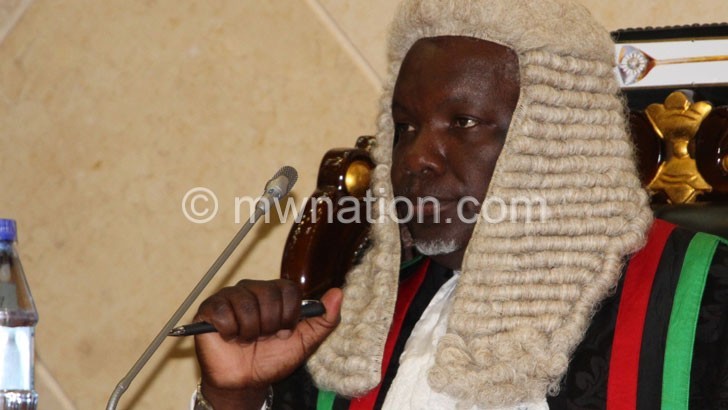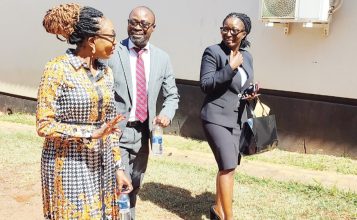Court blocks NGO Bill tabling
Dust is refusing to settle on the controversies surrounding the Non-Governmental Organisations (NGO) Amendment Bill with the High Court stopping Parliament from tabling or debating the proposed law pending a judicial review.
The order follows an exparte application by some civil society organisations (CSOs) who feel the provision threatens to wipe out civic space.

In a related development, the taxpayer-funded Malawi Human Rights Commission (MHRC) has written the National Assembly asking for the redrafting of the NGO Bill of 2018. In its communication, the commission notes that there are a number of issues to be clarified before the Bill is discussed in Parliament.
In the order under Judicial Review Case Number 14 of 2018 filed at the Lilongwe Registry, High Court Judge Charles Mkandawire granted the CSOs—Centre for Human Rights and Rehabilitation (CHRR), Centre for the Development of People (Cedep) and Youth and Society (YAS)—their wish as first, second and third claimants, respectively, against Speaker of Parliament Richard Msowoya and Leader of the House Kondwani Nankhumwa as first and second defendants.
Through lawyer Wesley Mwafulirwa, the CSOs argue that the Bill, unlike most proposed laws affecting particular sectors of society, was drafted without consulting the NGO community in the country; hence, should not be tabled or debated in Parliament.
In the claim, the CSOs’ lawyer said: “The said proposed law proposed more powers in the way the minister deals with NGOs, creates an ‘Authority’ whose composition is suspicious as it would have appointees of the minister.
“The ‘Authority’ itself, according to the proposal, would have too much power whose terms are vague and would in the long run use these powers to intimidate and stifle the civic space within which NGOs operate.”
In his ruling, the judge said: “It is hereby ordered as follows: [1]. Leave for judicial review is hereby granted; [2]. The claimants are supposed to file inter-partes summons within 14 days; [3]. The defendants are hereby restrained either by themselves or their agents or whomsoever from tabling or debating the NGO [Amendment] Bill in Parliament until a further order of this court.”
In an interview later, Mwafulirwa said his clients feel that any law that would endanger the civic space within which NGOs operate would be undemocratic and unconstitutional.
In a recent petition to Parliament, the CSOs argued that the proposed amendment creates “a monster regulator” and coordinator of NGOs in the proposed NGO Regulatory Authority with absolute powers without accountability checks.
They noted: “It whittles down the role of Congoma [Council for NGOs in Malawi]—a registered trust—and grabs its registered mandate and transfers it to the proposed NGO Regulatory Authority. In other words, the Amendment Act spells the demise of CSO activism.”
But in an earlier interview, Minister of Information and Communications Technology Henry Mussa wondered why the CSOs want to block the proposed Bill.
He said: “It will be strange to tell me that the CSOs or NGOs were never party to the consultations. What is it that has been added behind their backs that is agitating them to want to stop the whole process?”
Yesterday, MHRC, in its letter to Parliament, highlighted six areas of concern, including membership of the NGO Regulatory Authority, punishment for non-compliance of reporting requirement, incentives for registering with NGO Regulatory Authority, harsh punishments for non-compliance with the provisions of the law and non-participation of relevant stakeholders in the formulation of the Bill.
In the letter, MHRC executive secretary David Nungu recommended re-drafting of the law and involvement of more stakeholders.
Currently, the Bill—gazetted on November 9 2018—appears on the Order Paper, an outline of the official business to be undertaken in Parliament.
The NGO Act (Amendment) Bill, among others, removes the requirement for mandatory double registration and enhances the role of the NGO Board in the oversight and regulation of NGOs in Malawi.





